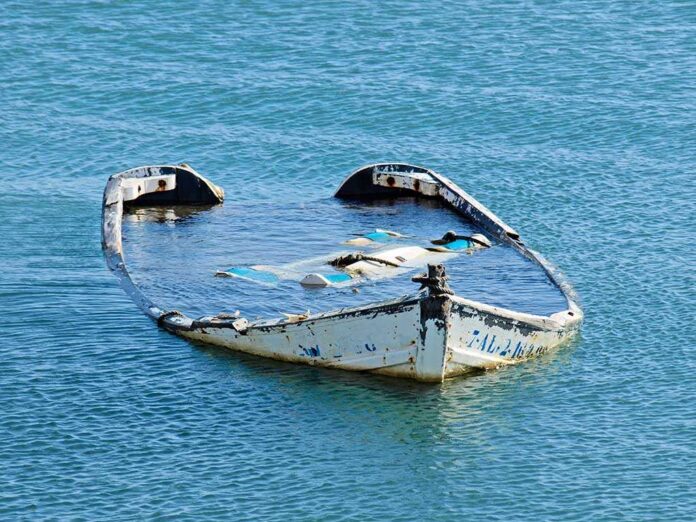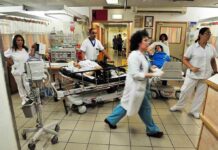
Bodies found bound and dumped in Spain’s Balearic Sea reveal a gruesome reality of human trafficking operations where migrants are handcuffed and thrown overboard, transforming tourist beaches into makeshift graveyards.
Key Takeaways
- Spanish authorities have recovered at least five bound bodies in the Balearic Sea, suspected to be Algerian migrants murdered by human traffickers
- The Balearic Islands have become a “graveyard” with approximately 30 migrant bodies washing up on beaches in the last six months
- A record 2,695 migrants have arrived in the Balearic archipelago in 130 boats this year alone, with 344 people intercepted in just three days
- Investigations are hampered by victims’ illegal status, preventing reporting of abuse and allowing traffickers to operate with impunity
- The horrific discoveries highlight the dark reality of uncontrolled migration that endangers lives and exposes failures in immigration enforcement
Grisly Discoveries at Tourist Hotspot
A major investigation is underway in Spain after multiple bodies were discovered floating in the Balearic Sea with their hands and feet bound, indicating deliberate murder rather than accidental drowning. The Civil Guard initiated their investigation after a Belgian-flagged vessel spotted a body on May 18, prompting deployment of the Guardia Civil patrol boat Río Segura. Authorities recovered a body wearing an orange life jacket and have since found at least four more corpses under similar circumstances, all believed to be migrants from Algeria who attempted the treacherous Mediterranean crossing to reach Spain.
The procedure for investigating violent deaths has been activated, with forensic doctors examining the bodies to determine the exact cause of death. Early evidence suggests these individuals were confronted, handcuffed, and deliberately thrown into the sea. The presence of restraints points to foul play, potentially implicating human traffickers who operate with brutal efficiency when faced with complications or payment disputes during illegal crossings. This disturbing case exposes the ruthless nature of smuggling operations that profit from desperate people seeking entry into Europe.
“The appearance of these bodies tied up confirms that we are living a migratory nightmare that some strive to deny and trivialize,” Alfonso Rodríguez Badal, Government delegate
Paradise Islands Becoming “A Graveyard”
The Balearic Islands, renowned for pristine beaches and Mediterranean luxury, have transformed into what one Spanish newspaper described as “a graveyard” for migrants attempting the perilous journey from North Africa. Approximately 30 bodies have washed up on Balearic beaches in the past six months alone, creating distress among tourists who have encountered decomposing remains during their vacations. In one particularly gruesome instance, tourists reported finding a detached human leg on a beach, highlighting the horrific human cost of failed migration policies and insufficient border enforcement.
“a graveyard,” a Spanish newspaper.
The number of migrant arrivals in the Balearic archipelago has reached alarming levels, with 2,695 people arriving in 130 boats so far this year. The weekend of June 20-22 alone saw 344 migrants intercepted by authorities, underscoring the escalating crisis. Most migrants attempting to reach European shores through Spain traditionally take the Atlantic route to the Canary Islands, but increasing numbers are now attempting the Mediterranean passage to the Balearics as enforcement focuses on other areas. Authorities maintain vigilance, particularly as calmer summer weather creates more favorable navigation conditions for smugglers’ vessels.
The Dark Underbelly of Illegal Migration
Investigations into these deaths face significant challenges because victims of human trafficking rarely report abuse due to their illegal entry into Spain. This silence creates a perfect environment for traffickers to operate with impunity, knowing their victims have no legal recourse. The brutal reality extends beyond murder – in a related incident, a 17-year-old girl reported being raped by a boat captain during a crossing to Formentera, leading to the arrest of 16 men by Spain’s National Police. This underscores the additional dangers faced by vulnerable migrants, particularly women and children.
“The cruellest side,” Regional president Marga Prohens.
The discovery of bound bodies in the Balearic Sea represents what Regional President Marga Prohens called “the cruellest side” of irregular migration routes. These tragedies expose the catastrophic consequences of policies that fail to address illegal immigration at its source and instead create opportunities for criminal networks to exploit desperate individuals. The prior Biden-Harris administration’s border policies have exacerbated similar issues in America, demonstrating that weak enforcement and mixed messaging create humanitarian disasters rather than compassionate outcomes. Until nations prioritize strong borders and legal immigration pathways, these horrific deaths at sea will continue to be the predictable result of policies that encourage dangerous illegal crossings.












